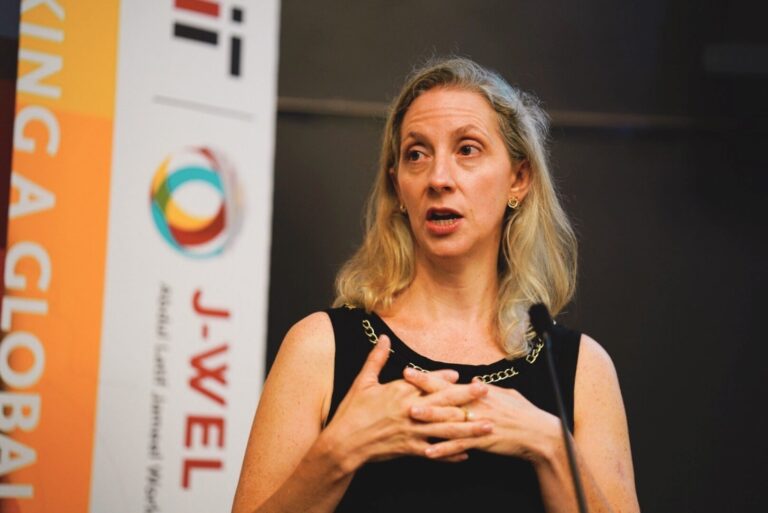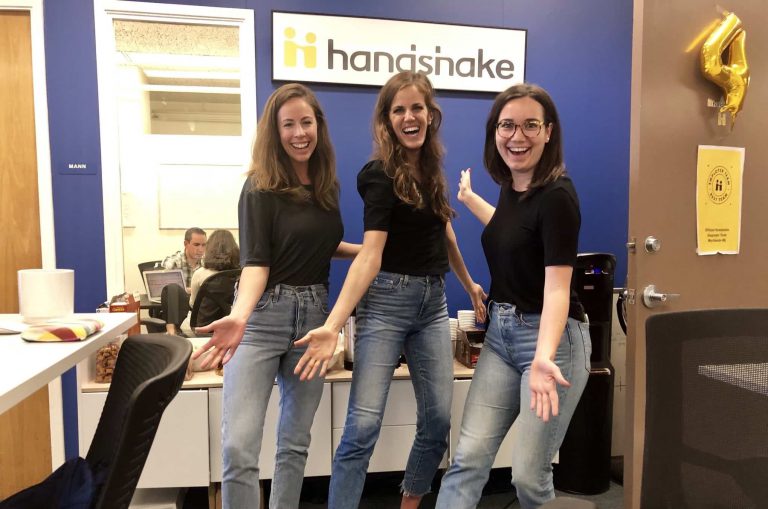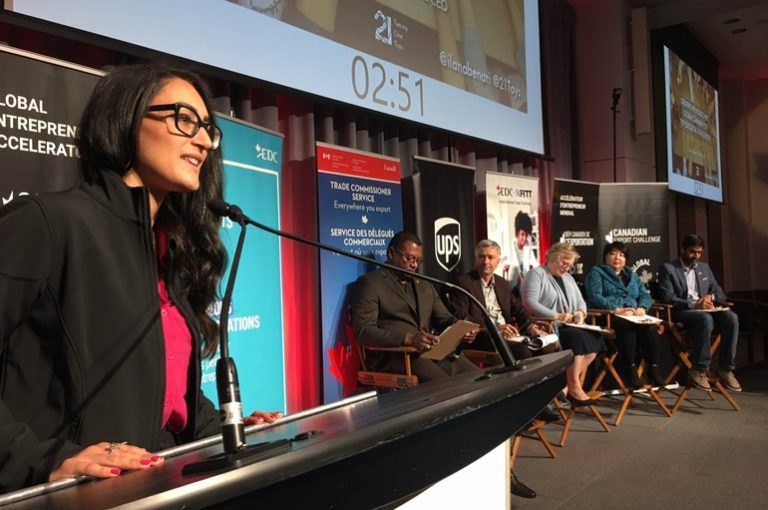Massive Open Online Courses: How Udemy Has Changed Education?
Online learning in different way has shown significant growth over the last decade, as the internet and education combine to provide people with the opportunity to gain new skills. Since the COVID-19 outbreak, online learning has become more centric in people’s lives. The pandemic has forced schools, universities, and companies to remote working and this booms the usage of online learning. Even before the pandemic, The numbers might be updated after analyzing the growth impacts of COVID-19 on the online learning market.
You might have heard it a million times, but education is finally being disrupted at last. MOOCs were just a test one but Udemy is the real thing. Let’s take a closer look.
About the Massive Open Online Courses Market

Massive Open Online Courses (MOOCs) first appeared around 2008 and that’s also the year when can Academy was launched. You could access many courses created by various institutions for free. Back in time, everyone said that’s “Universities are done. This is the new thing. That’s what’s going to disrupt education”.
There are numerous online learning platforms in the market such as Udemy, Coursera, Lynda, Skillshare, Udacity that serve millions of people. The platforms are getting shaped by different user verticals as well. While Skillshare is mostly for creatives such as giving courses on animation, photography, lifestyle, Coursera is mostly academic with giving access to university courses. Top tier universities are also democratizing the learning by making courses accessible via online. Stanford University and Harvard University give access to online courses under categories of computer science, engineering, mathematics, business, art, and personal development.
These all show one thing, there’s a huge demand from people to learn online. The reason for this demand and rapid growth of the market with a wide variety of platform options for different groups of people may be the rapid change of the world. At this moment, online learning is becoming a huge catalyzer for people and companies to help the adoption of this rapid change in the world.
Advantage of MOOCs
Breaking the geographical distance and the limited number of students is the main advantage of MOOCs but besides that, this model also has many notable advantages.
Lectures are always available – instead of just having one listen to the professors giving lectures at class, when you study through MOOCs you can review the lectures over and over again. This is a significant difference from just reading a textbook, because with the diversity of the means of knowledge transfer, learners also easily learn the lesson faster.
MOOCs also help you to increasing your autonomy in learning – from a conventional perspective, you may also find that acquiring knowledge is definitely more effective if learners actively exchange opinions (through MOOC forums) or through exposure to multimedia learning materials through recorded lectures.
You also can get a deeper understanding of the skills you want to learn – usually, college-level lectures will require you to master the basics before learning. But because of the limitations of lectures, concepts are often summarized, confusing learners. MOOCs thanks to taking advantage of the internet, helping you find information and connect concepts more quickly. Once you understand the overall picture of the subject, you can easily dig as you wish.
Disadvantages of MOOCs
A recent study conducted by the University of Pennsylvania on a sample of one million users showed that only 4% of surveyed people completed a course and 50% had never seen a full lecture. These numbers indicate a dimension of education that we have forgotten by default. Although some courses are supported with high technology platforms that allow teachers and students to interact, online learning has not created much motivation for learners.
MOOCs didn’t totally interrupt the education. And not only it didn’t, MOOCs were actually a failure on the grand scheme of things. It sounded good, but didn’t work. To answer the question why, here’s the thing when these websites were claiming to have millions of users, they were reluctant to communicate the number of engaged students. But that’s the most important. Many people heard about them, subscribed but actually never started a course the completion rates were dead ridiculous. But if you want to disrupt education, you better make sure that people actually study this stuff? So why weren’t they?
One reason is the most common problem of the “free psychology”. It it’s really simple. If you put your money on the table, you’ll be more engaged with the product. And the more expensive it is, the more you will want to feel like you’re getting something for your money. But that’s not all. Besides the fact that they were free and therefore not engaging. Most of the MOOCs were limited to institutions. It means that, it were the universities or the companies creating the content and most of the time, they didn’t even adapt their courses to online. They simply dumped loads of videos from old conferences or lectures and called them online courses. Obviously, no one really wanted to invest money in the real online course creation, because they weren’t getting their money back. Because again, it was given out for free, so the production quality was like non-existent. But also in addition to this what even tells you that university professors are the best people in their fields. Let that sink in, we got used to the fact that universities have the best knowledge but most of them don’t. The vast majority is actually pretty mediocre.
So with MOOCs, what we ended up with were basically old lectures short on camera, obviously not adapted to an online audience at all, delivered by random professors not necessarily the best in their fields and dumped for free, which killed student engagement right from the start. This were the reasons that made MOOCs fail. What this means is that free MOOCs sounded good and this websites were viewed like the Good Samaritans helping the whole world, but in reality, they actually made a huge disservice to online education. But what they did was a great intention. And what happened was basically an accident.
The Growth of Udemy
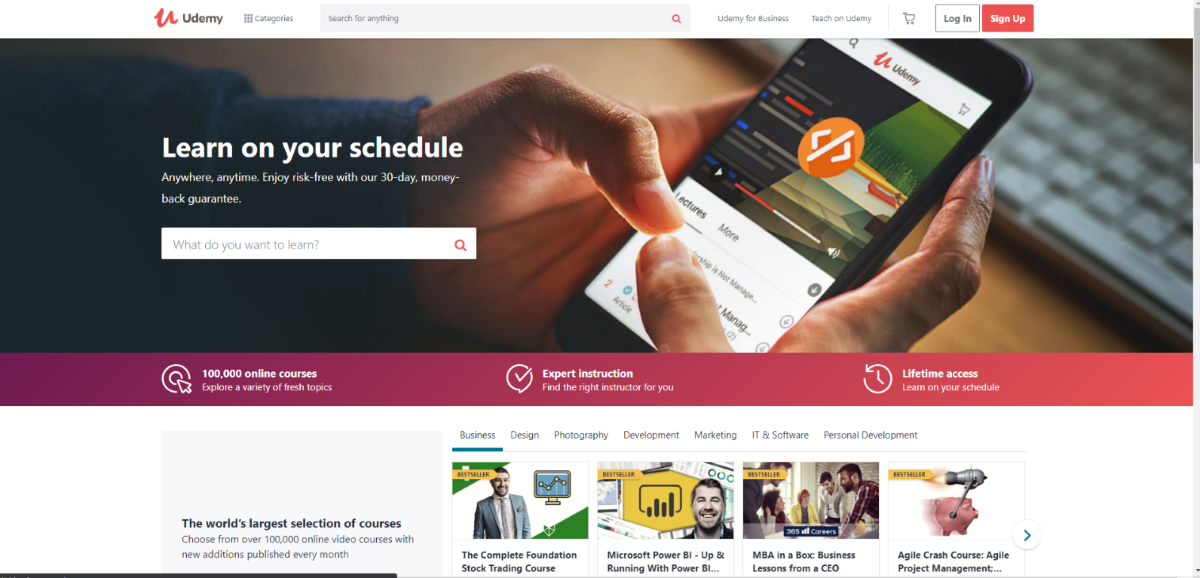
Udemy is a unique global course marketplace for anybody who wants to teach or learn online. With its “lifetime learning” offer it provides students with the ability to learn just about whatever they can think of, on the go, always at their own pace and on their own terms. Udemy also offers anybody a way to share their knowledge with the world by creating a course, provided they meet its quality and other requirements and the course is created within its proprietary platform.
Courses in Udemy are provided in several categories, including business and entrepreneurship, academia, arts, health, and fitness, languages, Music, and Technology. Most courses focus on practical topics such as Excel software or using iPhone cameras. Udemy is a great place to take classes and learn new skills. The good thing, and sometimes not so good for Udemy, is that anyone can create a course. You are not an expert to publish a course. Therefore, you must choose the course that you have registered. The good news is that you can quickly determine which classes are better and which ones are better not to use. Use class rank to your advantage: if you have five stars, then it can be a great course. If many students take a particular course, it has been successful in the past.
COVID-19 is keeping Americans homebound due to record unemployment and work-from-home orders — but that time isn’t being spent idly. The immense growth of online learning platforms like Udemy show us that Americans are looking for ways to keep busy under lockdown and that COVID may have permanently changed the face of education.
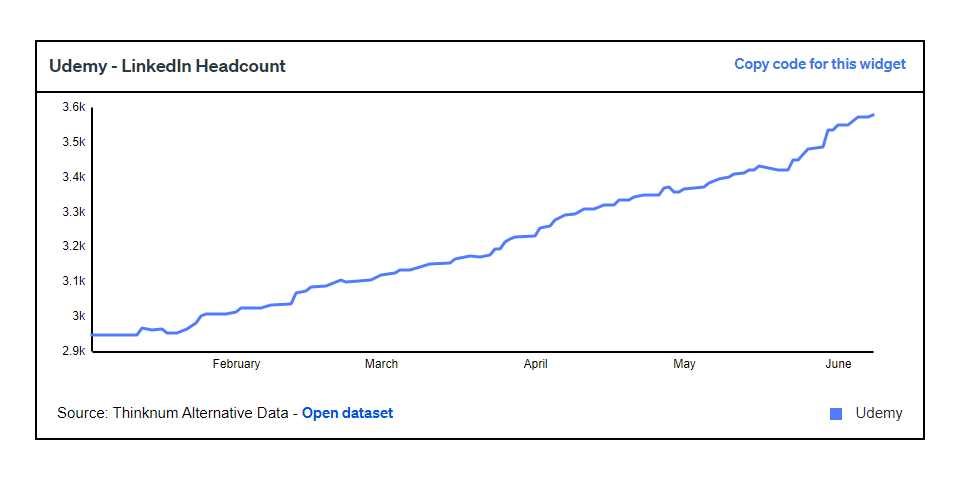
There’s no greater example of how much demand for online learning has grown than Udemy, one of the largest platforms which offers over 100,000 courses on topics ranging from piano to Python. Udemy announced in a recent report that its enrollment and number of available courses have increased by 425% and 55% respectively during the pandemic. LinkedIn Headcount shows Udemy’s workforce increased by 21% since the new year to keep up with demand, with the most significant increase occurring after March 15 when quarantine began for many Americans.
Everything changed when Udemy was launched and started to grow. Udemy decided to do two fundamental things differently. First of all, courses are paid. Not expensive, it’s still very cheap, but you do need to put some money on the table.
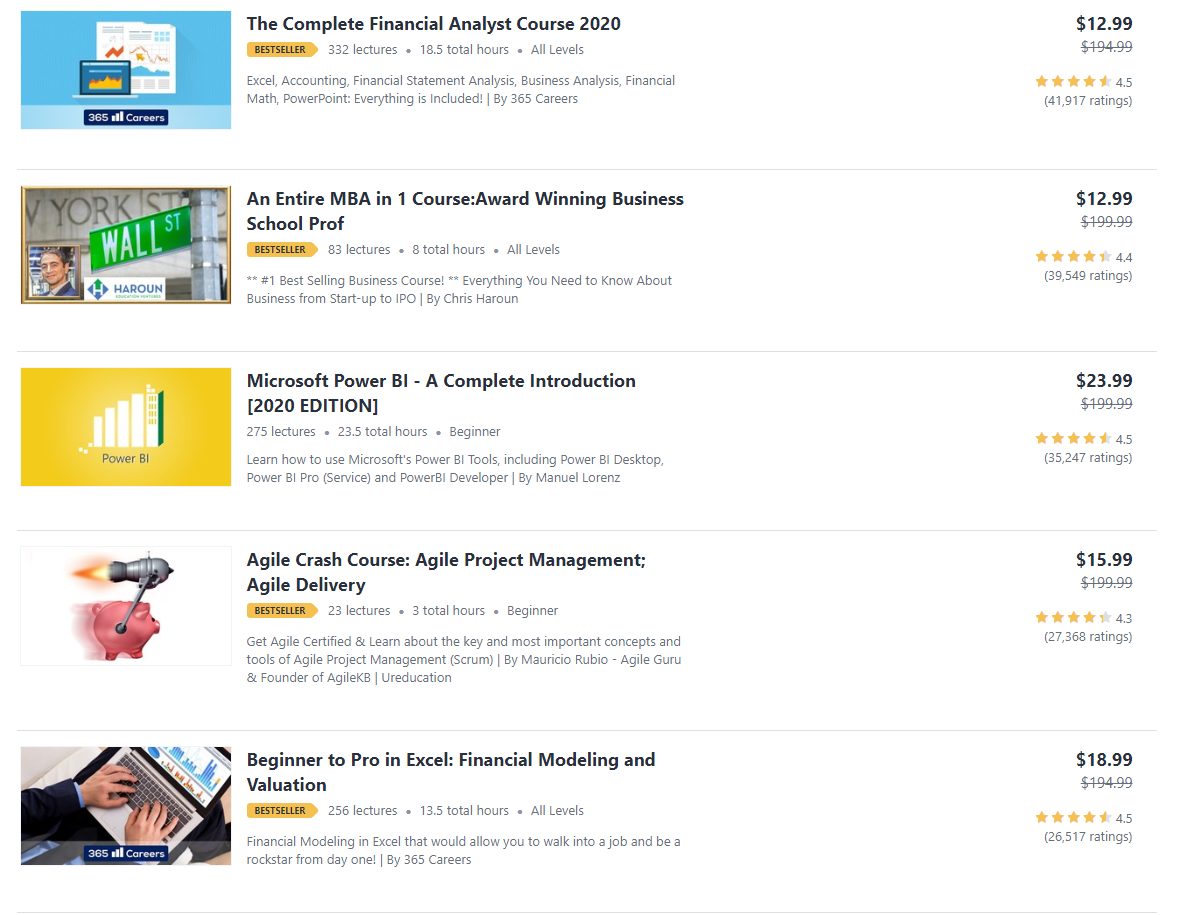
Second, anyone can publish on Udemy. You can publish on Udemy and you don’t need any official certifications. The market will decide whether you’re a good teacher or not. Students who buy your course will rate you, so your course will have an average rating and the algorithm will take their engagement rate into account meaning how much of your course people actually complete. If it’s high, it means that your course is interesting and if it’s well rated, it confirms that. And so the market decided. Udemy is killing it courses are of amazing quality, literally the best. And students are happily buying them, completing them and getting addicted to learning more and more.
Why was this change so dramatic? If we go back to the point about mediocre university, professors publishing books, Udemy proved that there are independent experts around the world who are much better than any University, but you just need to find them somehow. They exist, but they might not be interested to work as teachers in university. And so how do you find them? You make them earn money. Top-tier universities are expensive, so that they can pay big salaries to their most unique professors. That’s also why a free University indication in most countries is sort of ok but it’s never going to be MIT or Harvard level.
So you’d be found a sweet spot between paid education but cheap enough to courses, so that the volume of students is huge which allows instructors to earn decent money and as they earn more and more of it, the online course quality bar increases because of competition. Instructors will try better and better ways to make engaging courses, not boring to deaths like university lectures. They try to make courses concise, so that students learn efficiently and not sit through pointless hours.
And these courses are reactive. Any new changes, any new information and the courses are updated. Take a computer science class for example, some coding and technical stuff. These are domains that change very often, new languages – new frameworks new best practices, etc., so many things that universities can’t even keep up with. And they also need longtime approvals to update their curriculums. But those instructors on Udemy are going to do it right away. Something new appeared, they’re going to test everything and update their courses and send a notification to everyone. And then their students are going to be up to date as well it goes so fast.
Udemy Is an Education Disruptor, Is It True?
But when it comes to education disruption, because of online courses, we actually believe that universities are not going to suffer that much. Because a huge part of education is working interacting with other people. We are social beings, so we will keep going to social places like universities to see each other. It’s just the nature sort of classes, and professors that will change. But there’s another group of people, however, that is set to suffer big time. And these are keynote speakers or coaches and trainers, that just repeat the same information to small groups of people. And as usual mid-level keynote speakers because the best ones will always find the market. But those people that are getting paid a few hundred or thousands of dollars per day to repeat the same keynote, over and over again but in different places. There’s really no reason to keep doing that, unless of course they bring more value by being extremely engaging with their alive audience and heavily adapting their speech to their clients, which would put them on a path to becoming more like consultants. And this is a way more complicated job than just repeating stuff.
And yes, Udemy is extremely disruptive and in a great way people can finally have access to all kinds of education and it’s high-quality. It’s paid but, the price point is very low so it’s affordable for everyone. If you didn’t know you to me before go ahead to the link Udemy and check it out. You can pick the courses that you’re interested in, but pay attention to the social validation. You can see how many reviews each course has and what is the average, also, how good is the production quality. And if you are yourself an expert in any field and you’re training people in real life, you should be creating online courses right now. It is the future and this is where it’s going. There will be a big transfer of wealth from coaches, trainers, educators to online instructors, and it’s already happening.
The Bottom Line
Basically, everything about the success of Udemy can be explained in one concept that mentioned in the beginning: “free market”. That’s it. If you’re restrict stuff to one particular segment, for example, only universities publishing online courses, the result will be mediocre. But if you open the floodgates, you will unleash quality and creativity. Now Udemy is one of the best platforms of its kind but there’s also Skillshare, similar but much smaller and new competitors will eventually emerge. There are also independent platforms instructors who prefer to not be on any marketplace and do their own marketing and sales directly. So all of this is called real quality online courses not MOOCs.


